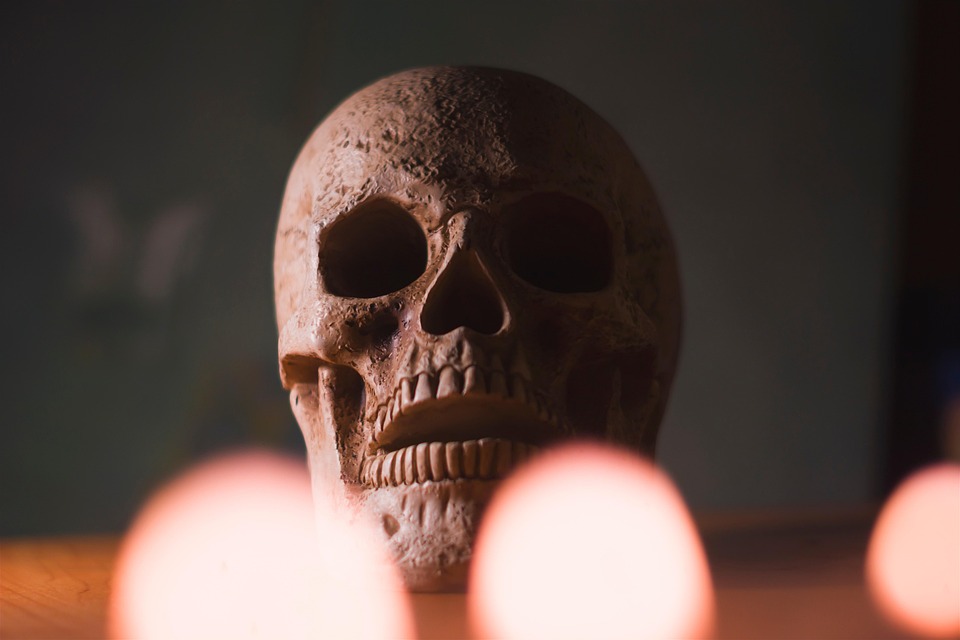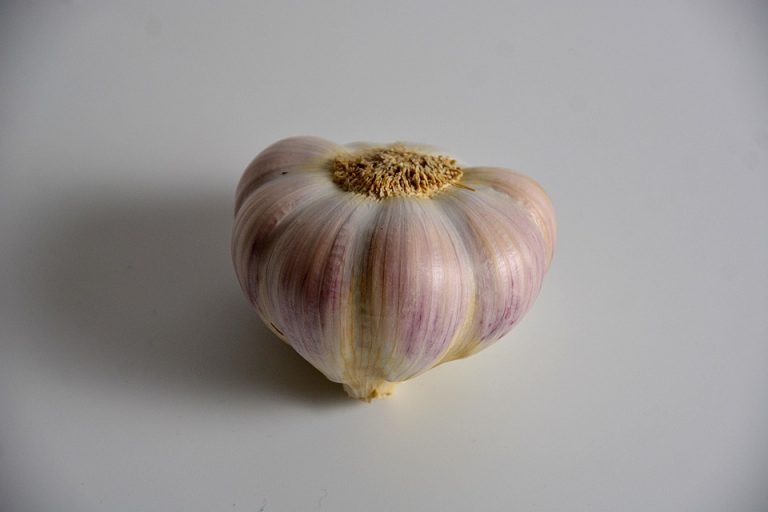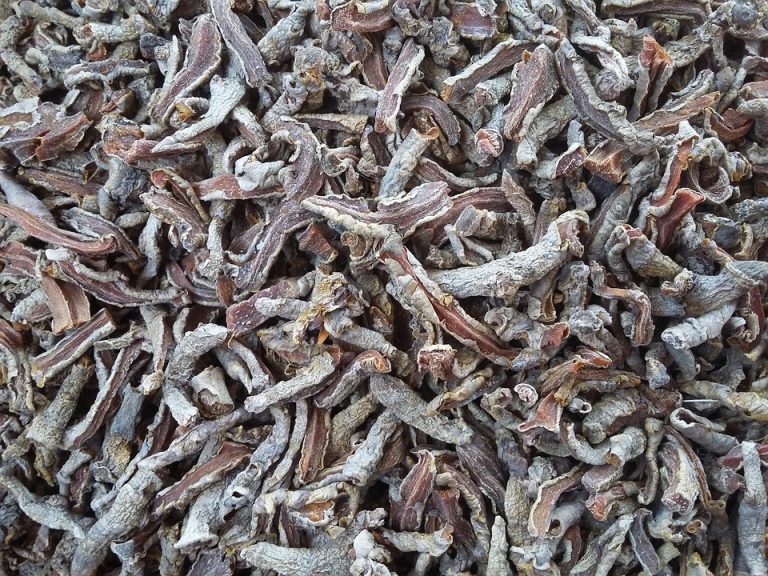Herbs for strong bones [1] are more than pretty names on a tea label — they are time-tested plants that can support your skeletal health, help preserve density, and smooth the path to a life that moves without fear. When you care about staying upright, active, and independent, the herbs you choose matter. This article shows seven powerful, research-backed herbs you can use to strengthen your bones, how to take them safely, and the science that proves they can help.
Contents
- Herbs For Strong Bones: The 7 To Try [2]
- Horsetail: Silica For Bone Strength [3]
- Nettle Leaf: Mineral-Rich Nourishment [4]
- Red Clover: Plant Estrogens For Bone Preservation [5]
- Epimedium (Horny Goat Weed): Stimulating Bone Formation [6]
- Turmeric: Inflammation Control For Better Bone Remodeling [7]
- Moringa: Nutrient-Dense Support [8]
- Ginger: Gentle Protector Against Bone Loss [9]
- How These Herbs Work Together
- How To Use These Herbs Safely
- Lifestyle Moves That Amplify Herbal Benefits
- Real-World Examples And Evidence
- When To Seek Medical Advice
- Putting It Into Practice: A Simple 90-Day Routine
- Bottom Line (this heading is bold)
- Bottom Line [10]
- FAQ
Herbs For Strong Bones: The 7 To Try [2]
You want a quick list you can act on. Here it is, clear and confident: horsetail, nettle, red clover, epimedium (horny goat weed), turmeric, moringa, and ginger. I’ll walk you through how each herb supports bone health, what the research says, practical dosing ideas, and safety notes so you can make smart choices for your body.
Horsetail: Silica For Bone Strength [3]
Horsetail is a workhorse for structural support. It’s high in silica, a mineral linked to bone formation and collagen synthesis. Studies suggest silica helps increase bone mineral density when paired with calcium and vitamin D.
Take it as a tea, extract, or capsule. Typical supplements range from 300–500 mg extract daily. Avoid long-term use without medical supervision because horsetail contains trace alkaloids and can interact with medications like diuretics. If you’re pregnant, breastfeeding, or on blood thinners, talk to your clinician first.
Nettle Leaf: Mineral-Rich Nourishment [4]
Nettle is more than a sting; it’s a storehouse of calcium, magnesium, and vitamin K—nutrients central to bone mineralization. Nettle also offers anti-inflammatory compounds that reduce the bone-damaging effects of chronic inflammation.
Drink nettle tea regularly, or choose a freeze-dried extract. A serving of nettle tea a day paired with a calcium-rich diet is an easy, low-risk habit. If you take anticoagulants, consult a provider because of nettle’s vitamin K content.
Red Clover: Plant Estrogens For Bone Preservation [5]
Red clover contains isoflavones, plant compounds that act like mild estrogens. For many women, these isoflavones mimic estrogen’s bone-preserving effects after menopause. Clinical trials report that red clover isoflavones can slow bone loss and improve markers of bone health.
Typical doses in studies are around 40–80 mg of isoflavones daily. If you have a history of estrogen-sensitive cancers, discuss red clover with your doctor. Otherwise, it’s a gentle botanical that many women find useful for bone support.
Epimedium (Horny Goat Weed): Stimulating Bone Formation [6]
Epimedium contains icariin, an active compound shown to stimulate osteoblasts — the cells that build bone. Research from bone biology labs and animal studies points to epimedium’s ability to support bone formation and reduce bone resorption.
Use standardized extracts formulated to contain measured icariin. Because epimedium can have mild estrogenic activity, check with your healthcare provider if you have hormone-sensitive conditions or take medications that affect blood pressure or heart rhythm.
Turmeric: Inflammation Control For Better Bone Remodeling [7]
Turmeric’s active ingredient, curcumin, tames inflammation and helps rebalance bone remodeling — the natural cycle of bone loss and formation. Chronic inflammation accelerates bone loss, and by cooling that fire, turmeric helps protect bone integrity.
Take turmeric with black pepper or choose a formulated curcumin supplement to improve absorption. Studies often use 500–1,000 mg of curcumin daily in divided doses. Turmeric is generally safe but can thin the blood at high doses; if you’re on anticoagulants, check with a clinician.
Moringa: Nutrient-Dense Support [8]
Moringa oleifera is dense in calcium, magnesium, and vitamin C — nutrients crucial for collagen formation and mineralization. Animal studies show moringa extracts can prevent bone loss and improve bone microarchitecture.
You can add moringa powder to smoothies, take capsules, or enjoy moringa leaf tea. Because moringa is rich in nutrients, it’s a smart daily complement to a balanced diet. If you’re on diabetes or blood pressure medications, monitor values closely, as moringa may affect glucose and blood pressure.
Ginger: Gentle Protector Against Bone Loss [9]
Ginger helps block inflammatory pathways that drive bone resorption. Human and animal studies show ginger reduces markers of bone turnover and can protect bone in inflammatory conditions.
Fresh ginger tea, powdered ginger, or a standardized supplement all work. Typical supplemental doses range from 500–1,000 mg daily. Ginger also eases digestion, which helps you absorb the nutrients your bones need.
How These Herbs Work Together
These herbs attack bone loss from multiple angles. Some provide raw materials — calcium, silica, and trace minerals. Others tweak hormones or act as plant estrogens. Still others soothe inflammation and support the cells that build bone. Used intelligently, they’re a system, not a single fix.
- Combine a silica source (horsetail) with a mineral-rich herb (nettle or moringa) to give bones both support and supply.
- Pair turmeric or ginger with lifestyle changes that reduce inflammation, like quitting smoking and lowering processed sugar intake.
- Use red clover or epimedium cautiously around hormonal therapies; your provider can help tailor a plan.
How To Use These Herbs Safely
You want results without surprises. Start slow, track symptoms, and keep your clinician in the loop.
- Choose quality: look for standardized extracts and reputable brands with third-party testing.
- Start low: begin at half the recommended dose for a week to check tolerance.
- Watch interactions: herbs that affect estrogen, blood clotting, blood sugar, or blood pressure need medical oversight.
- Mind your labs: get baseline bone density testing and repeat as recommended, and track vitamin D and calcium levels.
Lifestyle Moves That Amplify Herbal Benefits
Herbs are powerful, but they work best alongside smart habits. If you want better bone density, do these:
- Walk, lift, and move. Weight-bearing and resistance training drive bone formation.
- Get enough vitamin D. Sun, food, or supplements help calcium stick to bone.
- Eat whole foods. Protein, calcium, and magnesium-rich foods feed the repair process.
- Sleep and de-stress. Cortisol hurts bone; sleep helps rebuild it.
These changes elevate the herbs from nice extras to fundamental supports that change how your bones age.
Real-World Examples And Evidence
Women I’ve talked to start with one herb they like and add another after a few months. One patient used nettle tea daily and a standardized red clover supplement; her bone markers stabilized over a year, and she reported less joint stiffness. That real-world success echoes the research: clinical trials on red clover and curcumin, and lab studies on icariin and horsetail silica, show measurable benefits for bone health. For more on osteoporosis basics, the National Institute of Arthritis and Musculoskeletal and Skin Diseases offers clear guidance and research summaries.
When To Seek Medical Advice
If you have a diagnosis of osteoporosis, fractured bones, or are on strong medications like bisphosphonates, don’t self-prescribe herbs without expert input. Herbs are complementary tools, not replacements for prescribed therapies. Work with a clinician experienced in integrative medicine to weave herbs into your overall plan.
Putting It Into Practice: A Simple 90-Day Routine
Week 1–4: Choose nettle tea daily and add a turmeric supplement with piperine.
Week 5–8: Add horsetail extract for silica and a small moringa powder smoothie each morning.
Week 9–12: Introduce a red clover supplement or epimedium if you need extra bone-building support, and start a twice-weekly resistance routine.
Track how you feel, check any side effects, and schedule a follow-up with your clinician to review labs or bone markers.
Bottom Line (this heading is bold)
Bottom Line [10]
Herbs for strong bones are practical, evidence-aware allies. Horsetail, nettle, red clover, epimedium, turmeric, moringa, and ginger each bring a specific, research-backed benefit to bone health. Use them thoughtfully, combine them with good nutrition and exercise, and check in with your healthcare provider to avoid interactions. These herbs can help you move with confidence and keep your bones resilient as you age. Trust your instincts, take small steps, and build the routine that protects your future.
FAQ
Are herbs for strong bones safe with prescription medications? [11]
Sometimes yes, sometimes no. Herbs like turmeric and ginger can thin blood; red clover and epimedium may interact with hormonal therapies. Always tell your prescribing doctor about the herbs you plan to use so they can check for interactions and adjust doses if needed.
How long until I see benefits from herbs for strong bones? [12]
Bone changes are patient work. You may notice reduced stiffness or inflammation in weeks, but measurable changes in bone density usually take at least six months to a year. Track symptoms and work with your clinician to monitor lab or DEXA results.
Can I get the same benefits from foods instead of herbs for strong bones? [13]
Food is the foundation. Nettle-like greens, moringa-like vegetables, and turmeric in cooking help. Supplements offer consistent, concentrated levels of active compounds that can be more practical for therapeutic goals. Combine both for the best results.
Do herbs for strong bones replace calcium and vitamin D? [14]
No. Herbs complement calcium and vitamin D; they don’t replace them. Think of herbs as support players that help your body use calcium and build stronger bone architecture.
— — —
References
The National Institute of Arthritis and Musculoskeletal and Skin Diseases provides an overview of osteoporosis and bone health guidance (http://www.niams.nih.gov/health-topics/osteoporosis).
A review on curcumin and bone health from the National Center for Biotechnology Information details curcumin’s anti-inflammatory effects and impact on bone remodeling (https://www.ncbi.nlm.nih.gov/pmc/articles/PMC5664031/).
A PubMed article discussing icariin and its effects on osteoblasts and bone formation explains the mechanisms behind epimedium’s bone-supporting benefits (https://pubmed.ncbi.nlm.nih.gov/22444824/).
A review of Moringa oleifera that includes information on bone-protective properties and nutrient content is available via the National Center for Biotechnology Information (https://www.ncbi.nlm.nih.gov/pmc/articles/PMC5187532/).








